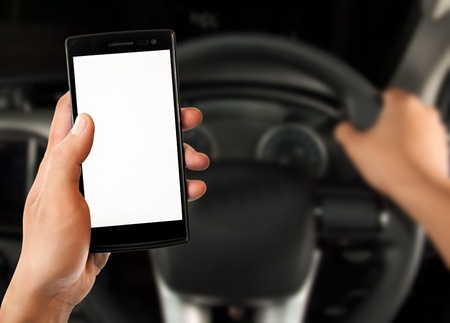

Distracted Driving Study
Distracted driving is defined as doing another activity that takes attention away from driving; it is a known risk factor to increasing the chances of a car accident and was responsible for 17 percent of car crashes in which someone was injured in 2011. Every day, distracted driving car crashes are the cause of 9 deaths and more than 1100 injuries.
There are three main types of driving distractions are visual (taking eyes off the road); manual (taking hands off the steering wheel); and cognitive (mental distraction).
While many activities can cause distracted driving, texting while driving is considered the most dangerous because it combines all three types of distraction. It also takes the driver’s attention away from driving more frequently and for longer periods than other driving distractions. In December 2012, more than 171 billion text messages were sent or received in the US, a number that has surely grown in the following years.
Distracted Driving Injury Statistics
In 2012, 3,328 people were killed in car crashes involving a distracted driver, down from 3,360 in 2011. On the opposite trend, that same year an additional 421,000 people were injured in car crashes involving a distracted driver; a nine percent increase from the 387,000 people injured in 2011.
Distracted Driving Study
The CDC analyzed 2011 data on distracted driving, including talking on a cell phone or reading or sending texts or emails while driving. Key findings included:
Talking on a cell phone while driving
69 percent of U.S. drivers aged 18-64 acknowledged that they had talked on their cell phone while driving within the last 30 days.
Texting or emailing while driving
31 percent of U.S. drivers aged 18-64 acknowledged that they had read or sent text messages or email messages while driving at least once within the last 30 days.
Texting While Driving Linked to Other Risky Driving Behavior
Among high school students in the United States, texting while driving is linked with drinking and driving or riding with someone who has been drinking, according to a CDC study. Students who reported engaging in risky driving behaviors admitted that they had texted and drove at least once in the last 30 days.
3 Key findings:
- Almost half of all U.S. high school students aged 16 years or older text or email while driving.
- Students who text while driving are nearly twice as likely to ride with a driver who has been drinking and five times as likely to drink and drive than students who don’t text while driving.
- Students who frequently text while driving are more likely to ride with a drinking driver or drink and drive than students who text while driving less frequently.
Texting and Driving Laws
- Many states have enacted laws such as banning texting while driving and using graduated driver licensing systems for teen drivers.
- Federal employees have been banned from texting and driving while on official government business or driving with government owned equipment since 2009.
- Since 2010, the Federal Railroad Administration banned cell phone and electronic device use of all employees while on the job.
- Since 2010, the Federal Motor Carrier Safety Administration enacted a ban that prohibits commercial vehicle drivers from texting while driving on the job.
- In 2011, the Federal Motor Carrier Safety Administration and the Pipeline and Hazardous Materials Safety Administration banned all hand-held cell phone use by commercial drivers and drivers carrying hazardous materials.
It is not clear, however, that cell phone and texting laws are actually decreasing distracted driving-related car crashes.
If you or a loved one were injured in an accident, you have enough to deal with. Let an experienced accident attorney fight for the full compensation that you deserve. It is not uncommon to receive a settlement from the insurance company that is five to ten times bigger with the help of a lawyer. Call the caring accident attorneys at Tario & Associates, P.S. in Bellingham, WA today for a FREE consultation! We have been representing residents of Whatcom County, Skagit County, Island County and Snohomish County since 1979. You will pay nothing up front and no attorney fees at all unless we recover damages for you!




